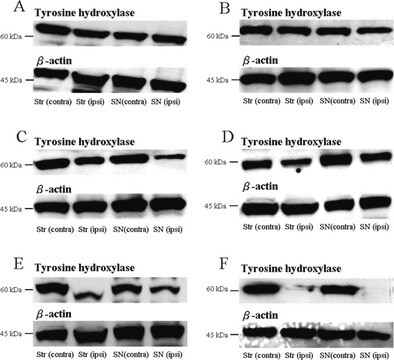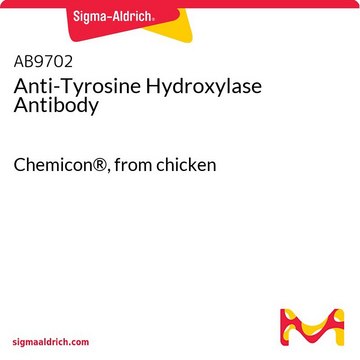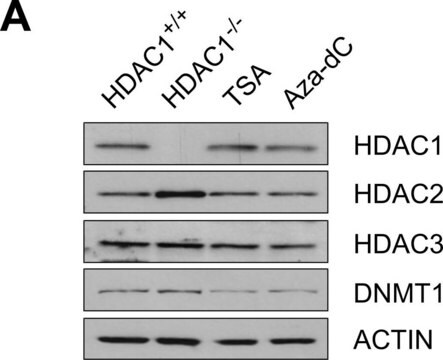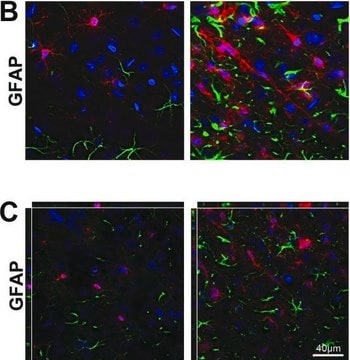SAB4200697
Anti-Tyrosine Hydroxylase antibody, Mouse monoclonal
clone TH-16, purified from hybridoma cell culture
Sinónimos:
TH, TYH
About This Item
Productos recomendados
biological source
mouse
Quality Level
antibody form
purified immunoglobulin
antibody product type
primary antibodies
clone
TH-16, monoclonal
form
buffered aqueous solution
species reactivity
rat, dog, rabbit, human, sheep, guinea pig, mouse, monkey, bovine
concentration
~1 mg/mL
technique(s)
immunoblotting: 1-2 μg/mL using whole extract of rat PC-12 cells
immunohistochemistry: suitable
immunoprecipitation (IP): suitable
isotype
IgG1
shipped in
dry ice
storage temp.
−20°C
target post-translational modification
unmodified
Gene Information
human ... TH(7054)
General description
Tyrosine hydroxylase (TH) is encoded by the gene mapped to human chromosome 11p15. TH is a tetramer of four identical subunits, which is characterized with a regulatory, catalytic, and tetramerization domains. The enzyme utilizes tyrosine, BH4 and O2 as co-substrates, and Fe2+ as a cofactor.
Immunogen
Biochem/physiol Actions
Physical form
Storage and Stability
Other Notes
Disclaimer
¿No encuentra el producto adecuado?
Pruebe nuestro Herramienta de selección de productos.
Optional
Storage Class
10 - Combustible liquids
flash_point_f
Not applicable
flash_point_c
Not applicable
Certificados de análisis (COA)
Busque Certificados de análisis (COA) introduciendo el número de lote del producto. Los números de lote se encuentran en la etiqueta del producto después de las palabras «Lot» o «Batch»
¿Ya tiene este producto?
Encuentre la documentación para los productos que ha comprado recientemente en la Biblioteca de documentos.
Nuestro equipo de científicos tiene experiencia en todas las áreas de investigación: Ciencias de la vida, Ciencia de los materiales, Síntesis química, Cromatografía, Analítica y muchas otras.
Póngase en contacto con el Servicio técnico






